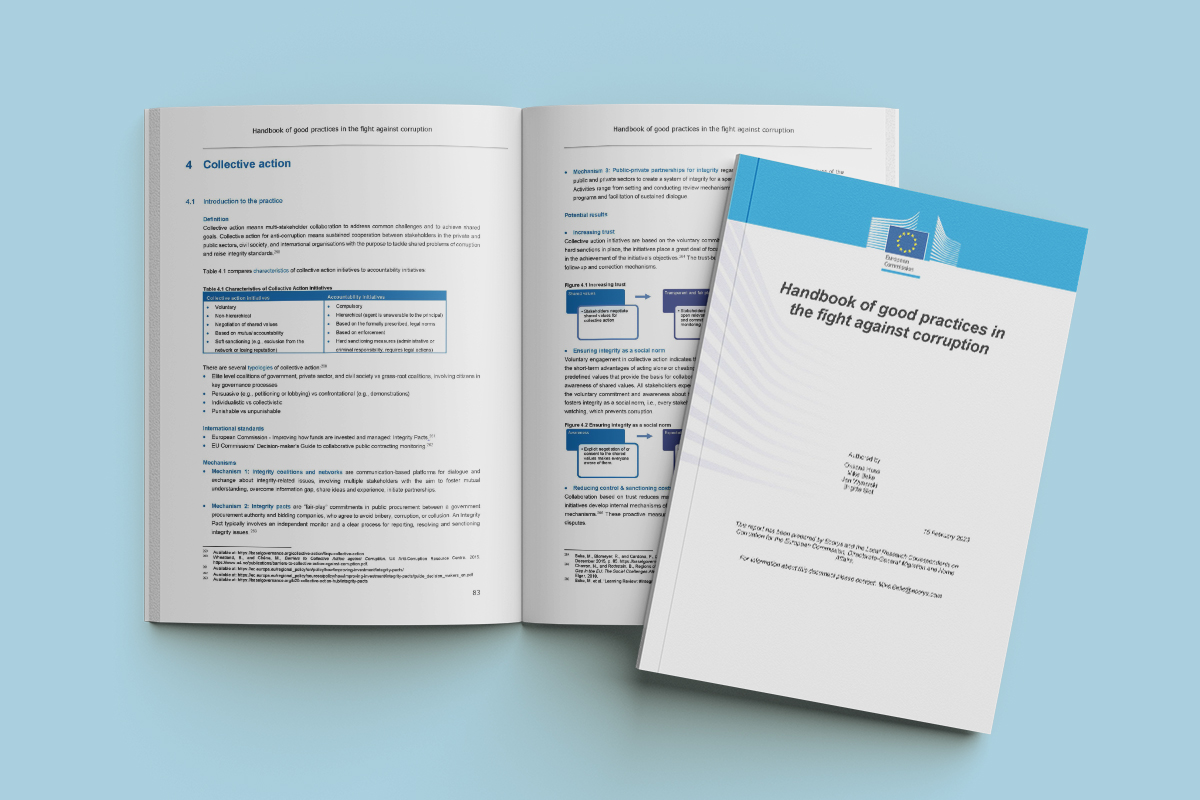European Commission’s new anti-corruption handbook endorses Collective Action

The European Commission has issued a strong endorsement of anti-corruption Collective Action as a “best practice” in the fight against corruption.
Its Handbook of good practices in the fight against corruption explains how Collective Action can bring together “stakeholders in the private and public sectors, civil society, and international organisations to tackle shared problems of corruption and raise integrity standards."
Such structured, multi-stakeholder action can, say the Handbook’s authors, help to:
- increase trust between actors with often competing incentives and goals;
- ensure integrity in business as a social norm; and
- reduce control and sanctioning costs for companies and governments.
A mainstream element in anti-corruption
The endorsement joins a growing chorus of official backing for multi-stakeholder approaches to corruption in various international, national and sector-specific standards and guidelines.
These include the OECD’s revised 2021 Anti-Bribery Recommendation, which for the first time explicitly and formally recommends Collective Action as a tool to tackle corruption, and policy papers of the B20 group of business leaders year after year. The World Bank and European Investment Bank were early supporters.
National governments are increasingly including Collective Action as part of their national anti-corruption strategies – from the UK to Chile and most recently South Africa. In addition to endorsing Collective Action, the handbook also offers valuable insight into how governments can get involved in Collective Action.
The backing is significant, because these international and national bodies play an important role in ensuring that Collective Action becomes a global “norm” and a mainstream element in anti-corruption efforts. Only then can it achieve its true potential.
Learn more
The Handbook is a collaborative effort between Ecorys and Local Research Correspondents on Corruption in each EU Member State. It was prepared for the European Commission, Directorate-General Migration and Home Affairs.
Our team of Collective Action specialists were pleased to contribute to the interview phase and to see many resources of the B20 Collective Action Hub referenced in the Handbook. Since 2013, we have operated this free online platform for knowledge-sharing and engagement in anti-corruption Collective Action.


